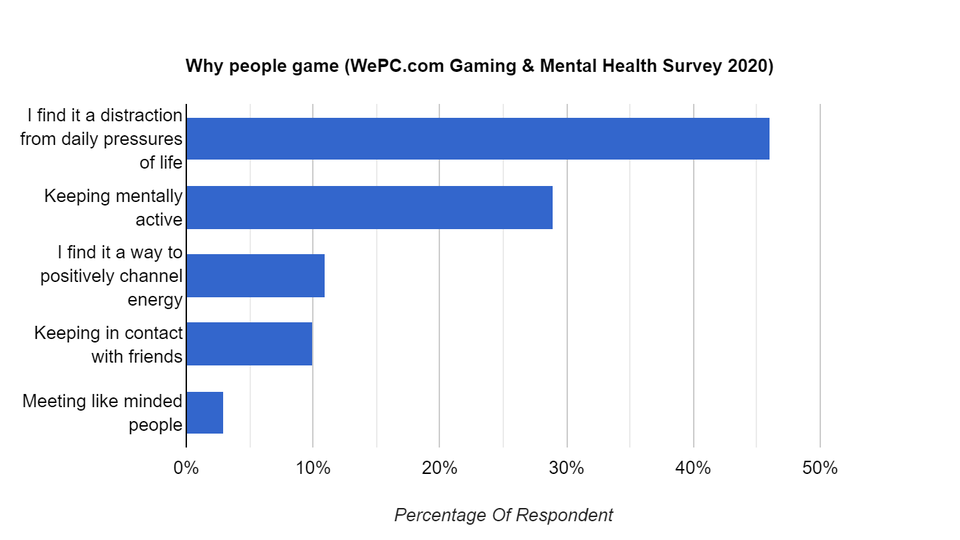Music & Games
Gaming a bad influence? Research says no
A perception exists that all forms of gaming negatively affect mental health, but the reality is gaming becomes an issue when used in an excessive manner.

October 19, 2020
Is gaming bad for your mental health? Some health "experts" think so, but a recent survey by WePC, an organization that assists PC builders and content writers, challenges this view.
The survey, conducted in late September of 524 U.S. respondents using the most recent U.S. Census for gender and age balancing, revealed that 92% of U.S. gamers said that playing video games has no negative effect on their mental health and 37% said it has a positive impact.
 |
WePC commissioned the survey to explore the effect gaming is having on people's everyday state of mind.
With the world forced into lockdown due to the global pandemic, gaming increased exponentially in 2020, according to the survey, as consumers deep dived into the hobby.
But the survey found only 7.82% of gamers surveyed believe it negatively affects their mental health.
One respondent described gaming as "a coping mechanism for the debilitating effects of living with OCD" while another claimed, "it's a way to be involved in interactive entertainment in the new socially distanced world."
Nearly half, 46% of respondents, cited gaming as a useful distraction from the pressures of everyday life during lockdown.
In the survey, 49% of those who said it had a positive impact on their mental health spent between one and 10 hours gaming per week.
However, those who admitted to spending over 41 hours gaming per week were 69% more likely to experience negative impacts than those who gamed for 1-10 hours.
Last year the World Health Organization caused controversy when it officially designated video game addiction as a mental health disorder.
 |
The WHO said for gaming disorder to be diagnosed it must have a "significant impairment" lasting at least 12 months.
Another report by the research firm, Ipso, found individuals were driven toward playing multiplayer games in order to meet like-minded people and boost mental wellbeing.
However, 79% of those surveyed by WePC in September said they were more likely to play single-player games than multiplayer games. Those regularly playing single player games were more than twice as likely to experience a positive mental health benefit.
In fact, only 3% of respondents overall answered "yes" to playing games to meet like-minded people.
The WePC survey also indicated gaming improves cognitive function, with 29% of respondents saying they played games to keep mentally active.
Despite the positive results, perceptions about gaming will not change quickly, even in gamers themselves.
 |
Those respondents (53%) who believed there are negative perceptions in the media were 87% more likely to report a negative impact on their mental health compared to those who think there is no negative perception in the media (47% of respondents).
The survey found that 18-29-year-olds accounted for the largest share of "hardcore gamers." The 60 years and older age group was higher than expected coming in at 7.5% of the hardcore gamers.
The report said the new findings challenge the negative perceptions about gaming and will hopeful help remove these perceptions. A perception exists that all forms of gaming negatively affect mental health, but the reality is gaming becomes an issue when used in an excessive manner.
Charts courtesy of WePC.
 ChatGPT
ChatGPT Grok
Grok Perplexity
Perplexity Claude
Claude






